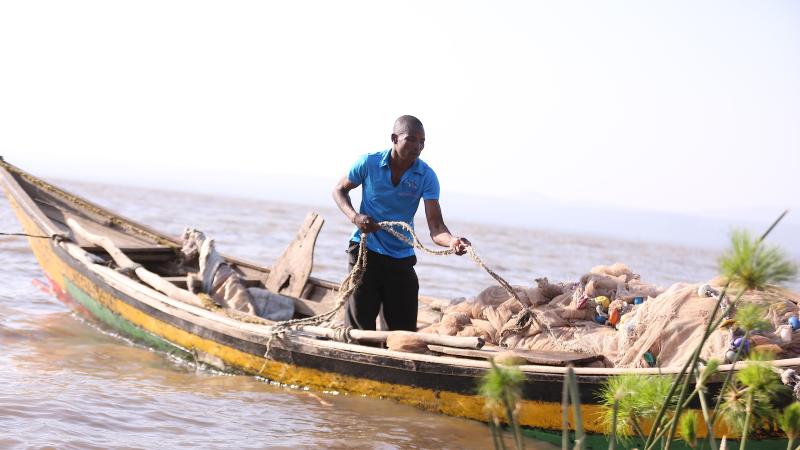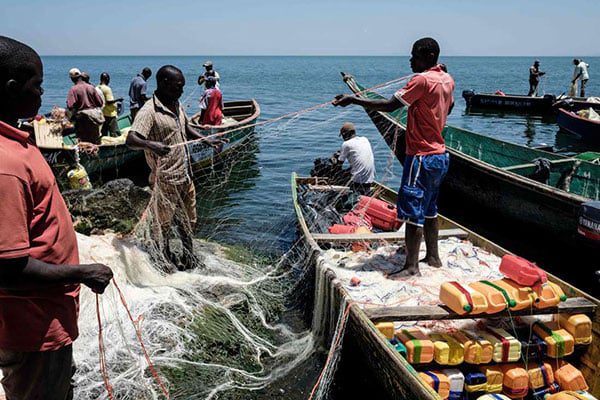In a number of localities, traditional methods including baskets, traps and mosquito nets continue to be used. The gear commonly used includes gill nets, lift nets, scoop-nets used in light fishing; hook and line gear (hand-lines, fishing rods or tackles) and fish traps.
Due to the use of the above methods of fishing, most of the fisher men are using unsized nets and some other tools to catch young fish which will reduce the number of fish in water bodies and this will affect the economy.

Lake Victoria is the world’s largest tropical lake and the largest lake in the African Great Lakes region. The lake supports the largest freshwater fishery in the world, producing 1 million tons of fish per year and employing 200,000 people in supporting the livelihoods of 4 million people.

Narrow continental shelf limits the growth of a large number of fish planktons (fish food) , Excessive high temperature creates preservation difficulties, Political instability especially in Uganda which has scared away foreign investors, Threat of crocodiles especially on Lake Kyoga which scare away fishermen.
The most serious obstacles to the continued expansion of the fish industry in Uganda are overexploitation of capture fisheries and increased water pollution in Lake Victoria.

Problems/limitations hindering the development of the fishing industry in East Africa. perch and sharks eat/feed on other small fish and reduce their number. nets and purse seines result into small quantities of fish caught. of boats hence loss of fishermen
Fishing is an essential source of food for many communities in East Africa. It provides a significant portion of the protein intake for the local population, especially in coastal regions and around major lakes like Lake Victoria

Fish that are the target of most commercial and subsistence exploitation include species like Nile perch (Lates niloticus), Nile Tilapia (Oreochromis niloticus), Pebbly Fish or Silversides (Alestes baremoze), Bagrus Catfish (Bagrus), Clarias Catfish (Clarias), Tiger Fish (Hydrocynus), the Silver Cyprinid (Rastrineobola
The East African Community has designated the lake basin as an ‘economic growth zone’, with the potential to develop into a major economic region. The fisheries are vital in creating employment opportunities, mostly rural-based, thereby helping to reduce rural-urban migration.
Uganda’s fisheries are a major source of food and are crucial to livelihoods and local economies, as well as being an important export. It is estimated that between 1.0 and 1.5 million Ugandans work directly in capture fisheries, with another 5,000 people engaged in the industrial processing fisheries sector.
BY CATHELINE ANKUNDA



